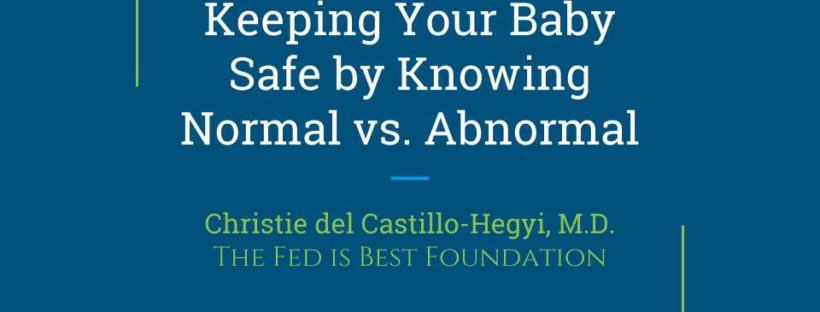by Christie del Castillo-Hegyi, M.D., Co-founder of the Fed is Best Foundation
In order to provide mothers and health professional a quick guide to preventing newborn brain injury in the first days of life, the following is a short slideshow on the scientific literature regarding the thresholds that predict newborn brain injury and developmental delay and disability in the first days of life related to insufficient feeding.
All complications of underfeeding, including jaundice, weight loss, hypernatremia, dehydration and hypoglycemia can be prevented with feeding sufficient milk before the complications occur. The scientific literature shows that by the time a child develops abnormal jaundice, hypernatremia or hypoglycemia, the brain injury that follows is irreversible and can result in long-term negative consequences to brain development, even when corrected.
We advise parents and health professionals to be knowledgable about what constitutes safe and unsafe lab values and weight loss so that all newborns can be protected.

Thank you so much for bringing to light this extremely important issue and educating mothers and practitioners on dangers of underfeeding. My baby too was finally fed on 27th hr of life with formula despite my numerous remarks about me being worried about dehydration (I did not realized that hypoglycemia is also a threat) and the fact that I do not feel I have anything in my breasts. After confirming there might be problems with feeding and the fact that my nipples were blistered from him trying to nurse, me requesting pump due to high level of pain while baby on my breast, LC herself offered formula.
Is there a clear list that mothers should look at to identify if they are at risk of low or absent milk supply?
For me with low milk supply and delayed lactogenesis II I have next:
No previous breastfeeding experience
Advanced age (40 or over)
Hyperglycemia before pregnancy
Gestational diabetes
Scheduled c-section
Family history (sister had to supplement)
History of autoimmune disorders (LC on outpatient visit suggested I have nipples Renaylds syndrome often associated with other autoimmune disorders that resulted in my baby not able to extract milk from my breast even with strong suck.
I my case, I never got full milk supply and milk came in only on day 7 (thank you, formula makers for giving us alternative). I still pump and supplement with formula since baby not able to pull milk due to Renaylds syndrom. I feel guilty about those 27hrs of hunger and will forever wonder if that have caused any damage to him. Thank you so much again for everything you do! I feel aweful that this awareness is by the expense of your baby’s health and health and life of numerous other children.